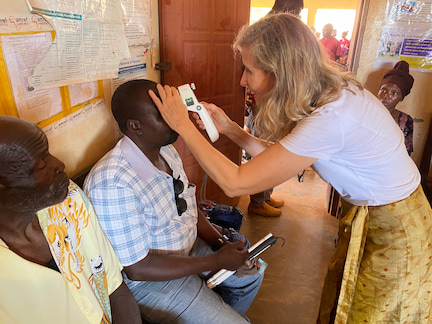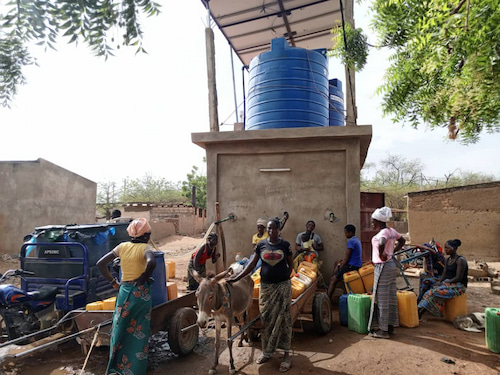We collect and use information on this website in accordance with our privacy policy. One of the ways in which we collect information is through the use of technology called "cookies". At www.fundacionrecover.orgWe use cookies for a number of things.
What is a cookie and what is its function?
Cookies are small information files that are sent and stored in the equipment from which you access this website (mobile phone, personal computer, tablet or connected television) facilitating the use of the same.
The cookies used by this website do not harm your computer, they are only used to improve the services offered. Some are strictly necessary for the website to function properly and others serve to improve performance and user experience.
What is its importance?
From a technical point of view, they allow websites to work more agile and adapted to users' preferences, such as storing the language, the country's currency or detecting the access device.
They establish levels of protection and security that prevent or hinder cyber-attacks against the website or its users.
They allow media managers to obtain statistical data collected in the Cookies in order to improve the quality and experience of their services.
They are used to optimise the advertising we show to users, offering the advertising that best matches their interests.
Further information in addition to that provided in this policy is available at guide to the use of cookies published by the Spanish Data Protection Agency.
Acceptance of cookies
When you access this website or application for the first time, a warning will appear informing you of the use of cookies and where you can consult this cookie policy.
No cookies will be downloaded until the user expressly consents to the installation of cookies. If the user consents to the use of cookies, they will be installed on the user's computer or device.
In addition to the use of our own cookies, we allow third parties to set and access cookies on your device.
What information does a cookie store?
Cookies do not usually store sensitive information about you, such as credit card or bank details, photographs or personal information, etc. The data they store are of a technical nature, statistics, personal preferences, personalisation of content, etc.
What types of cookies are there?
- Technical cookies: They are the most elementary and allow, among other things, to know when a human or an automated application is browsing, when an anonymous and a registered user is browsing, basic tasks for the functioning of any dynamic website.
- Analysis cookies: They collect information on the type of browsing you are doing, the sections you use most, products consulted, time of day you use them, language, etc.
- Advertising cookies: They display advertisements based on your browsing habits, country of origin, language, etc.
Cookies accepted by the regulation and excepted cookies
According to the EU directive, the cookies that require the user's informed consent are analytical cookies and advertising and affiliation cookies, with the exception of technical cookies and those necessary for the operation of the website or the provision of services expressly requested by the user.
What cookies does this website use?
This website uses its own and third party cookies. The following cookies are used on this website:
OWN COOKIES
Login: Login cookies allow you to log in and log out of your account at www.fundacionrecover.org
Personalisation: Cookies help us to remember which people or websites you have interacted with, so that we can show you related content.
Preferences: Cookies allow us to remember your settings and preferences, such as your preferred language and privacy settings.
Security: We use cookies to avoid security risks for you. Mainly to detect when someone is trying to hack into your account. www.fundacionrecover.org.
THIRD-PARTY COOKIES
Analytical Cookies
This website uses analysis services, specifically, Google Analytics to help the website analyse the use made by users of the website and improve its usability, but in no case are they associated with data that could identify the user. Google Analytics is a web analytics service provided by Google Inc. The user can consult here the type of cookies used by Google.
Social media cookies
Social media cookies may be stored on your browser while you browse www.fundacionrecover.orgfor example, when you use the share content button in the www.fundacionrecover.org on a social network.
Below, you have information about the cookies of the social networks used by this website in their own cookie policies:
- Facebook cookies, see more information on your cookies policy.
- Twitter cookies, see more information on their cookies policy.
- Instagram cookies, see more information on your cookies policy.
Can cookies be deleted?
Yes, and not only delete, but also block, either generally or for a specific domain.
To delete cookies from a website you should go to your browser settings and there you can search for the cookies associated with the domain in question and delete them.
- Cookie settings for Google Chrome
- Cookie settings for Apple Safari
- Cookie settings for Internet Explorer
- Cookie settings for Mozilla Firefox
More information about cookies
You can consult the regulation on cookies published by the Spanish Data Protection Agency in its "Guide on the use of cookies". and find out more about cookies on the Internet, https://www.aboutcookies.org/
If you want to have more control over the installation of cookies, you can install programs or add-ons to your browser, known as "cookie tools". "Do Not Trackwhich will allow you to choose which cookies you want to allow.
This cookie policy was last updated on 14 April 2024.













